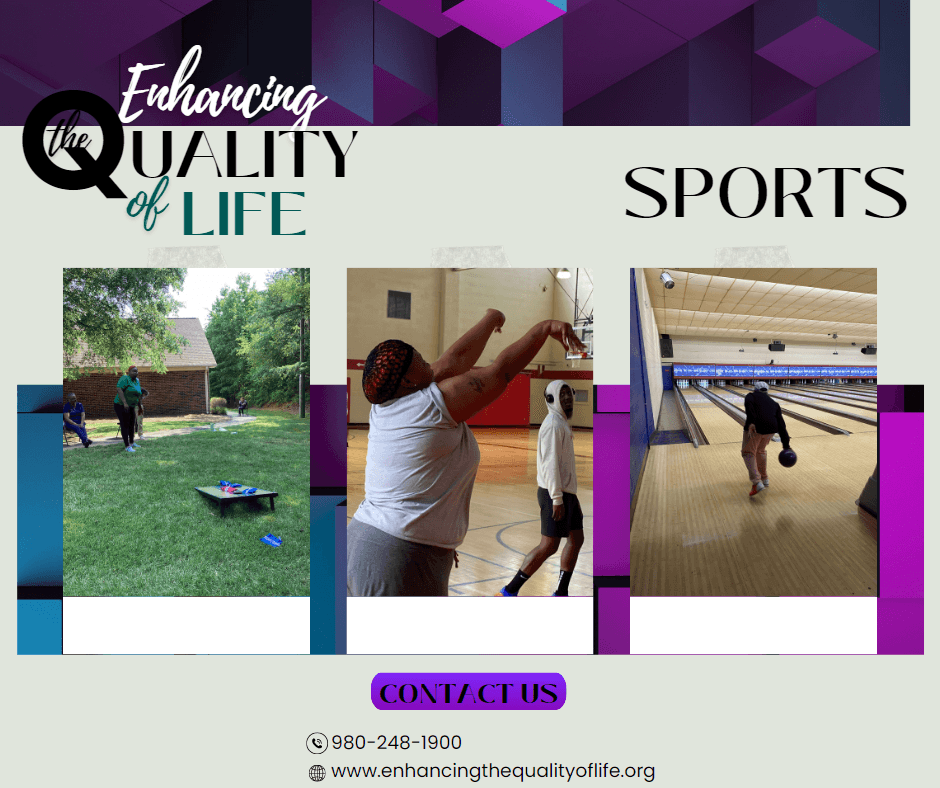Day Activity:
A day activity refers to structured and therapeutic activities provided to individuals receiving mental health treatment during the daytime hours. These activities are designed to support individuals in their recovery, promote well-being, enhance socialization, and provide a structured daily routine.
Day activities in Enhancing the Quality of Life can vary depending on the specific treatment approach, and the needs of the individuals. Some common examples of day activities in our facilities include:
Group Therapy Sessions: These sessions involve individuals participating in therapy groups facilitated by mental health professionals. Group therapy allows individuals to discuss and explore their experiences, emotions, and challenges in a supportive and structured environment.
Psychoeducational Workshops: Psychoeducational workshops provide information and education on various mental health topics. They may cover topics such as coping skills, stress management, communication, problem-solving, and relapse prevention.
Recreational and Creative Activities: Mental health facilities often offer recreational and creative activities as a means of self-expression and relaxation. These activities may include art therapy, music therapy, sports, yoga, meditation, or other forms of recreational therapy.
Life Skills Training: Day activities can focus on developing practical life skills that support individuals in their daily lives. This may include training in areas such as budgeting, time management, cooking, personal hygiene, and employment skills.
Socialization and Peer Support: Enhancing the Quality of LIFE recognize the importance of socialization and peer support in recovery. Day activities may involve opportunities for individuals to connect, interact, and support one another through structured socialization activities, group outings, or support group sessions.
Occupational Therapy: Occupational therapy may be incorporated into day activities, focusing on helping individuals regain or develop skills for meaningful and productive daily activities. This can include activities that promote cognitive, physical, and emotional well-being.
The specific day activities offered in Enhancing the Quality of Life will depend on the facility's resources, treatment approach, and individualized treatment plans. The activities are typically tailored to meet the unique needs and goals of each person receiving treatment.
Day activities in mental health facilities play a vital role in providing structure, support, skill-building, and therapeutic interventions to individuals on their journey towards mental health recovery.
Community Support Team
Community support in Enhancing the Quality of Life refers to the provision of ongoing assistance, resources, and services to individuals with mental health conditions beyond the confines of the facility itself. It involves connecting individuals to community-based support systems and promoting their integration into the broader community.
Community support in Enhancing the Quality of Life can encompass various elements, including:
Case Management: Enhancing the Quality of Life often provide case management services to individuals, assisting them in accessing necessary resources and coordinating their care. Case managers work closely with individuals, their families, and community service providers to ensure continuity of care and support.
Referrals and Linkages: Community support involves connecting individuals to community resources and services that can further support their mental health and overall well-being. This may include referrals to outpatient therapy providers, support groups, vocational training programs, housing assistance, financial resources, and other relevant services.
Psychosocial Rehabilitation: Community support programs within Enhancing the Quality of Life offer psychosocial rehabilitation services aimed at enhancing an individual's functional skills, independence, and overall quality of life. These services can include skills training, socialization activities, and assistance with daily living tasks.
Peer Support: Engaging individuals with lived experience of mental health challenges as peer support workers can be a valuable component of community support. Peer support workers provide guidance, empathy, and understanding based on their own experiences, promoting hope, connection, and recovery for individuals receiving services.
Community Integration Activities: Enhancing the Quality of Life organize or facilitate community integration activities to help individuals develop social connections, build supportive relationships, and engage in meaningful activities outside the facility. This may involve outings, recreational activities, volunteer opportunities, or participation in community events.
Advocacy and Empowerment: Community support in Enhancing the Quality of Life often includes advocacy for individuals' rights, empowerment, and self-advocacy training. This helps individuals navigate systems, assert their needs, and overcome barriers they may encounter in accessing resources or services.
The goal of community support in Enhancing the Quality of Life is to foster individuals' recovery, promote their well-being, and enable them to lead fulfilling lives within their communities. By connecting individuals to the broader community and offering ongoing support, mental health facilities aim to enhance social integration, reduce stigma, and provide the necessary resources for individuals to thrive outside of the facility setting.
Operating Hours: Mondays to Fridays, 09:00 AM - 05:00 PM.
CLICK HERE for the Program enrollment form.
